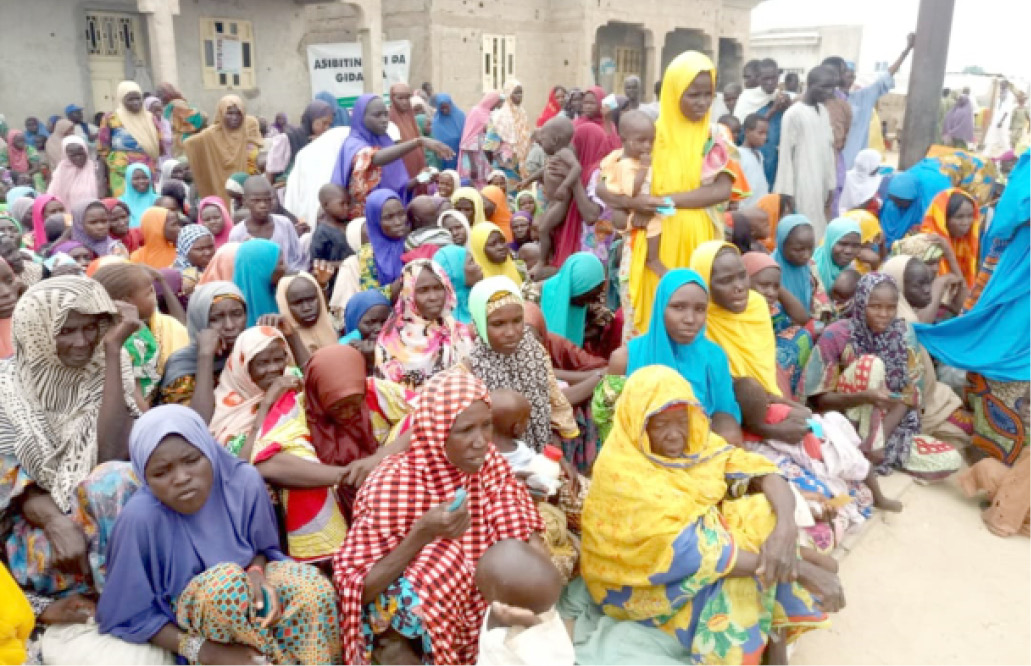United Nations and its partners are seeking $983 million to address the humanitarian needs of Internally Displaced Persons (IDPs) and Refugees in Nigeria, Cameroon, Chad and Niger.
This was disclosed at the simultaneous launching of the 2019-2021 Humanitarian Response Strategy and the Regional Refugee Response Plan in Abuja, on Tuesday.
Edward Kallon, UN Humanitarian Coordinator for Nigeria said the fund will be channeled towards provision of food, water, shelter and protection to the most vulnerable people in the Lake Chad Basin as a result of the insurgency in Nigeria.
According to him, $848 million will be used to address the humanitarian needs of IDPs in Nigeria while $135 million will be for refugees in the Lake Chad Basin.
The Humanitarian Response Strategy also articulates a collective vision for the next three years of humanitarian action and marks the first time, in Nigeria, that humanitarian actors are adopting a multi-year approach.
“We must sustain the efforts made over the recent years to ensure that aid reaches those who need it most,” Kallon said. “The decade-long conflict has brought immense suffering upon children, women, men, their families and communities. We have saved millions of lives, and as we strive to provide immediate response to new and existing humanitarian needs, we must also focus on addressing the causes of such untold suffering.”
Humanitarian organizations in Nigeria are targeting 6.2 million people hardest-hit by the crisis in Borno, Adamawa and Yobe states in the country’s north-east.
Although aid groups targeted almost the same number of people in 2018, this year’s budget is around $250 million less than the previous year, based on the assessed needs and the realistic capacity to deliver aid.
Last year, donors provided 67 per cent of the funds, or $700 million, enabling humanitarians to provide aid to more than 5.5 million people.
UNHCR, the UN Refugee Agency, seeks funding for the 228,500 Nigerian refugees who have fled into neighbouring Cameroon, Chad and Niger, and points to a disturbing trend of events.
“Attacks are still happening, killing civilians and forcing thousands to flee for their lives. Young girls, old women and aid workers continue to bear the brunt of this escalating theatre of violence,” said Liz Ahua, Regional Refugee Coordinator for Nigerian refugees and UNHCR Regional Representative for West Africa.
The escalation in the conflict has thwarted the people’s intention of returning to their homes.
“Some refugees that attempted to return to their homes and communities have become displaced multiple times in their own country or have retreated to Cameroon, Chad and Niger to continue in exile,” Mrs. Ahua added.
Today, 2.5 million people are displaced across the Lake Chad region, with 1.8 million in Nigeria alone and 228,500 being refugees in neighbouring countries.
A recent upsurge in violence in north-east Nigeria has displaced over 80,000 civilians who have sought refuge in crowded camps or in towns in Borno State and are surviving in arduous living conditions, according to UN reports.
The UN reports also shows that over 15,000 have fled to neighbouring Cameroon and Chad in the past weeks.
“Around 1.7 million people are currently food insecure in Borno, Adamawa and Yobe states; 368,000 children are severely acutely malnourished; two-thirds of health facilities have been damaged; and around 900,000 children lack schooling,” a UN report says.
UN wants $983 million for IDPs, refugees in Nigeria, other Lake Chad countries

 Join Daily Trust WhatsApp Community For Quick Access To News and Happenings Around You.
Join Daily Trust WhatsApp Community For Quick Access To News and Happenings Around You.


